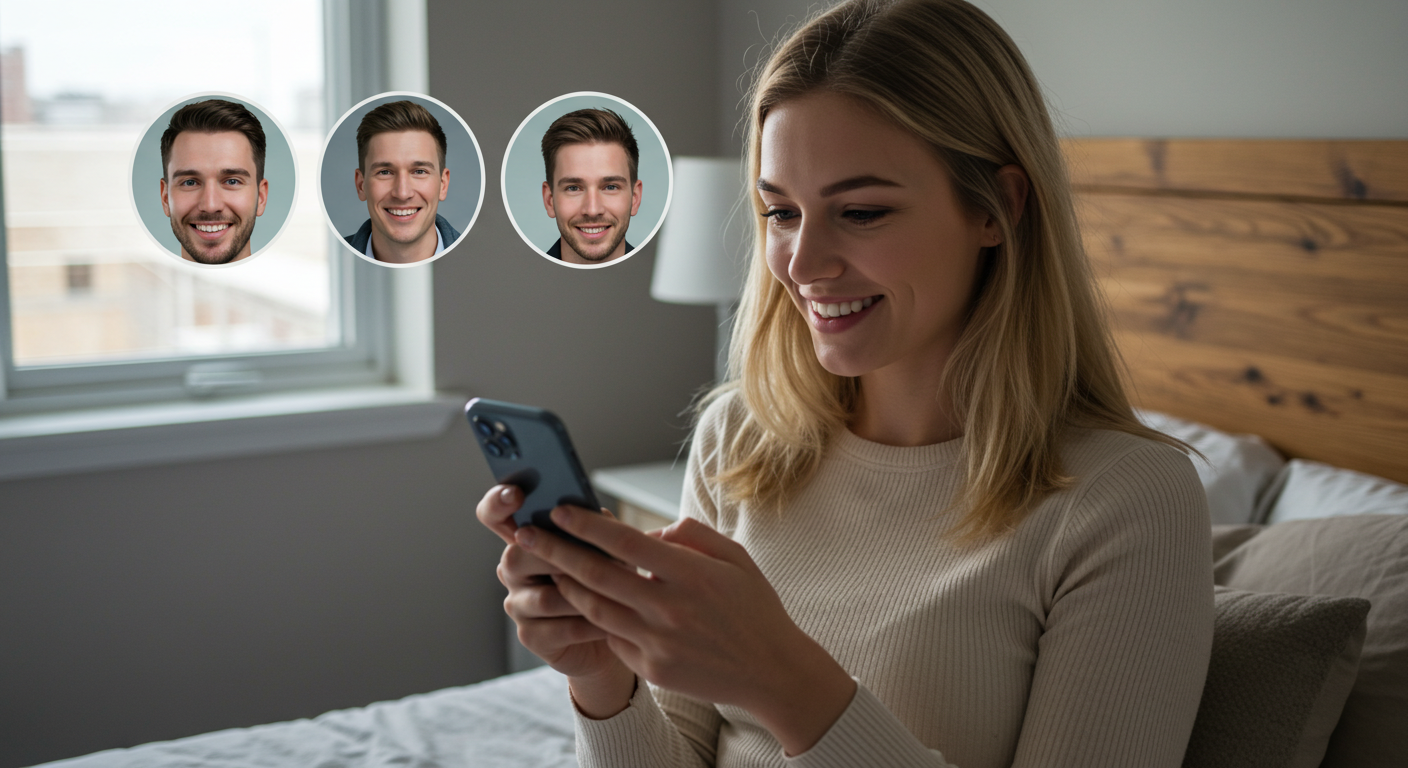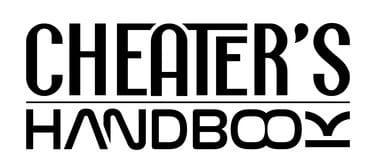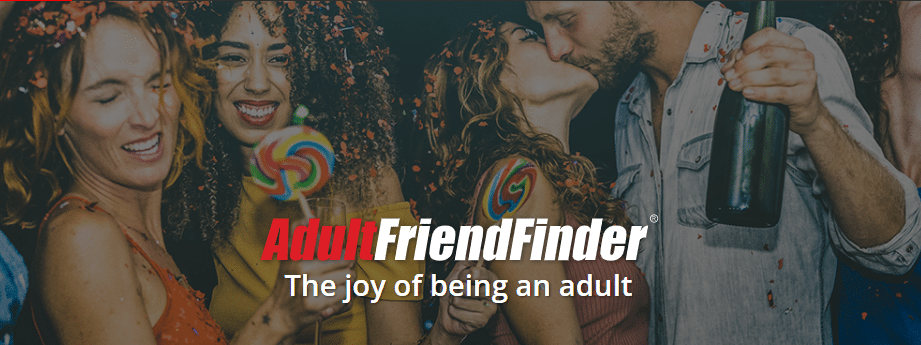‘Loud Looking’: How Singles Are Redefining Dating Profiles in 2025

The performance of online dating used to be subtle. You hinted. You implied. You let your photos do most of the work. Bios were vague on purpose—part flirtation, part defense. You didn’t want to scare someone off by saying too much, so you said almost nothing at all.
That version of dating culture is fading, fast.
What’s replacing it is something more direct, more deliberate, and frankly more refreshing. It’s called loud looking—a movement that doesn’t believe in leaving your intentions up for interpretation. It’s not about shouting, and it’s not about desperation. It’s about being honest from the start, not halfway through a situationship that should’ve ended at hello.
Loud looking isn’t driven by ego—it’s driven by time. People are tired of swiping through profiles that say nothing, talking to people who mean even less, and investing in connections that dissolve because nobody was clear about what they wanted. It’s not a cry for attention. It’s a filter. And the people who use it aren’t hoping to be seen by everyone—they’re trying to be seen by someone who gets it.
It doesn’t mean dating is suddenly easier. But it does mean the process is becoming less chaotic. Because when people are upfront about their values, timelines, and boundaries, everything else—conversation, chemistry, compatibility—has a real shot at unfolding without games.
This isn’t just a trend in app bios. It’s a shift in tone, posture, and what we now consider attractive. The new green flag isn’t just someone who’s funny or hot. It’s someone who knows what they’re looking for—and actually says it out loud.
1. Dating Profiles Aren’t Vibes Anymore—They’re Filters
You can scroll past hundreds of profiles and not remember a single one. That’s the product of a culture that once prized being casual over being clear. For years, dating advice pushed people to be “approachable,” “light,” “open to anything.” Which usually meant hiding your actual dealbreakers and softening your intentions just enough to avoid rejection.
Loud looking throws that rulebook out.
Today’s most effective dating profiles aren’t trying to charm—they’re trying to communicate. The goal is no longer to attract everyone. It’s to attract the right ones, and turn away the rest without wasting a week of polite back-and-forths. That means a different kind of profile is taking shape: one that reads more like a boundary than a pitch.
A profile might say “not here for emotional unavailability,” “kids someday is a must,” or “I’ve done the ‘chill’ thing—now I want consistent.” These aren’t warnings. They’re invitations. And they’re part of a larger cultural pivot where people are less afraid of seeming intense and more afraid of being misunderstood.
Apps are adapting to this energy too. Hinge now lets users display dating intentions with more nuance. Bumble is leaning into conversation prompts that nudge people toward values-based disclosures. And niche platforms like RadarQR are experimenting with intent-driven dating formats altogether.
But none of this works without the person behind the profile deciding to be brave enough to say what they actually want. That’s what loud looking demands—not more information, but more ownership. And for a generation that’s finally tired of decoding mixed signals, that ownership feels revolutionary.
2. Dating Fatigue Isn’t Just Real—It’s Driving the Shift
There’s a reason loud looking is catching on, and it’s not just because people want clarity. It’s because they’re exhausted.
Burnout used to belong to jobs, not relationships. But in 2025, emotional fatigue from dating is one of the most common reasons people are either checking out completely—or radically rethinking how they show up. The process of swiping, matching, exchanging pleasantries, and then watching things quietly die has left people depleted, not hopeful.
What loud looking offers isn’t a shortcut—it’s a filter that respects your energy. Instead of investing in ten half-hearted conversations, singles are choosing to be intentional with one. They’re bypassing surface-level attraction in favour of alignment that actually feels sustainable. Not every connection needs to lead to something, but more people are demanding that the process itself doesn’t feel like a loop of wasted effort.
This shift isn’t about cynicism. If anything, it’s about optimism that’s been recalibrated. You can still want love, chemistry, even mystery—but not at the expense of your peace. Loud looking makes space for that balance. It says,
“I’m still open, but I’m not starting from scratch every time.”
It’s also giving rise to a different kind of dater—one who doesn’t flinch at vulnerability. Who understands that being direct is an act of self-respect, not neediness. Who realises that stating emotional goals early doesn’t guarantee an outcome, but it prevents the slow bleed of energy into connections that were never going anywhere.
Dating has become emotionally expensive. Loud looking doesn’t reduce the cost—but it helps people stop spending where there’s no return.
3. Bios That Feel Like Boundaries
There’s a new confidence in how people are using dating apps—not in their photos, but in their language. The profile has become a line in the sand. Not to provoke, but to protect.
This is where loud looking really changes the tone. The strongest profiles don’t try to sell you on the person behind them. They tell you what they value and where they stand. Sometimes it’s subtle: “I value emotional availability.” Sometimes it’s more explicit: “I’ve outgrown casual.” Either way, it’s not performance—it’s positioning.
These kinds of profiles don’t chase validation. They create space for alignment. They signal that the person behind them knows what they’ve already outgrown, and they’re not here to repeat the same cycle with a different face.
And they work.
Because in a world where everyone is tired of pretending not to care, there’s something magnetic about someone who does. Loud looking flips the script: emotional clarity becomes the attraction point, not the dealbreaker.
It’s also why these profiles repel just as much as they attract. They’re not meant to appeal to everyone—and that’s precisely what makes them effective. They move past the noise and focus on resonance. They don’t hide from incompatibility; they anticipate it and politely show it the door.
This is where bios become more than bios. They’re not branding. They’re boundaries. And for a generation of daters no longer willing to waste time, that shift is long overdue.
4. When the Bio Becomes a Blueprint
It’s easy to assume loud looking only exists in the digital realm—tight phrases, typed boundaries, intention as bullet point. But its influence doesn’t stop at the profile screen. Once someone starts articulating what they want with that kind of precision, it naturally bleeds into how they carry themselves offline too.
Dating apps used to be a place where people presented a version of themselves that didn’t quite match how they behaved in real life. Now the opposite is happening. A well-written, intentional bio has become a personal blueprint. It’s not just a public stance—it’s a private reminder. A compass. A quiet, persistent commitment to stay aligned even when attraction tries to pull someone off course.
This alignment is subtle but powerful. Someone who writes “I’m interested in emotional reciprocity” isn’t just checking a box—they’re choosing not to chase conversations that feel one-sided. Someone who declares “I’m building toward something serious” is more likely to step away from connections that feel suspended in vagueness. The bio may only be a few lines, but the behaviour that follows is where loud looking becomes real.
It’s this shift that makes loud looking more than just a dating trend. It starts with language, but it turns into decision-making. That kind of congruence? It’s rare—and increasingly, it’s what people are learning to respect.
5. The End of ‘Chill’ as a Strategy
The golden rule of dating, for years, was simple: be chill. Don’t ask too much, don’t reveal too quickly, don’t seem like you care more than the other person does. Chill was a mask. A delay tactic. A way of staying in the game without ever really playing.
Loud looking has dismantled all of that. Slowly, steadily, it has made it okay to care. To have expectations. To bring them into the open, not as ultimatums, but as baselines. And while that’s made some people uncomfortable—especially those who benefited from the emotional ambiguity of modern dating—it’s also created space for a more honest kind of connection.
We’re now seeing daters reject the passive language of the past. Instead of “seeing where it goes,” they say, “this is the direction I’m heading.” Instead of hoping someone figures out their needs through context clues, they state them outright. It’s not about being rigid. It’s about being intentional.
And that change doesn’t mean dating becomes sterile or overly structured. It means it becomes more grounded. There’s still room for spontaneity, for fun, for unexpected chemistry. But it’s framed by a foundation that’s not constantly shifting. Loud looking isn’t about removing the spark—it’s about making sure the spark lands on something solid.
For those still clinging to the old-school “play it cool” advice, this can feel jarring. But for the people embracing this shift, the results speak for themselves: better conversations, shorter emotional detours, and connections that actually feel mutual from the start.
6. What Happens When Everyone Stops Pretending
Something strange and unexpected happens when people stop trying to make themselves seem cooler, calmer, or less invested than they actually are. They start to meet each other for real.
Loud looking isn’t about overexposure—it’s about enough exposure. Enough truth upfront to skip the performance. Enough self-awareness to say,
“Here’s who I am, here’s what I want, and I’m not afraid to let that shape the room.”
The trend, at its core, is a trust fall with yourself. You trust that being honest won’t make you less desirable. You trust that it’ll protect you from the wrong connections. And most of all, you trust that clarity is still attractive.
The results? More daters are reporting quicker emotional alignment, fewer ghosting experiences, and more satisfying conversations. Not because everyone’s suddenly perfect—but because fewer people are pretending to be fine with things they’re not. Pretending takes energy. So does guessing. Loud looking removes both.
And while this might sound like a movement only for those seeking serious commitment, that’s not entirely true. Even casual daters are realising that clear expectations create cleaner exits and healthier dynamics. Loud looking isn’t about the kind of relationship you want—it’s about whether you’re willing to name it.
It’s that naming that changes everything.
Conclusion: Being Honest Is the New Sexy
If the last decade of dating taught us anything, it’s that silence doesn’t protect anyone. Not saying what you want doesn’t make you more mysterious—it just makes you more likely to end up confused, hurt, or wasting time. Loud looking is a direct response to all of that.
And no, it’s not for everyone. Some people will still prefer to play it vague, float through conversation, and avoid defining anything for as long as possible. That’s fine. But the people who are finding real connection in 2025 are the ones willing to be clear.
It turns out the loudest profiles don’t always shout. Sometimes they’re just steady. Direct. Grounded in someone who’s finally done editing themselves to seem more digestible. Loud looking isn’t about volume. It’s about ownership.
And that kind of energy? It’s reshaping dating in a way that’s long overdue.
My Go-To Platform for Flings, Affairs, and MILFs
Looking for top-notch flings, affairs, or MILFs? Skip the rest, AdultFriendFinder is the gold standard. Zero bots, zero fakes—just real connections. I've scored big in multiple cities. Sign up now, it's FREE!








